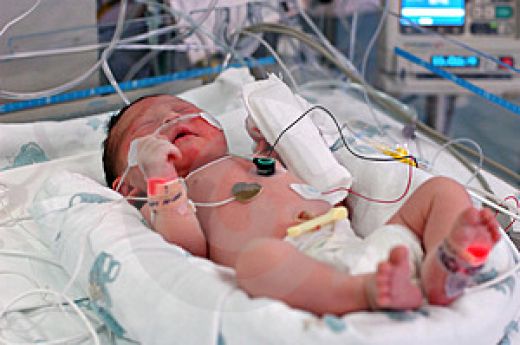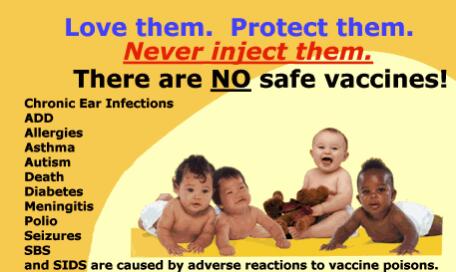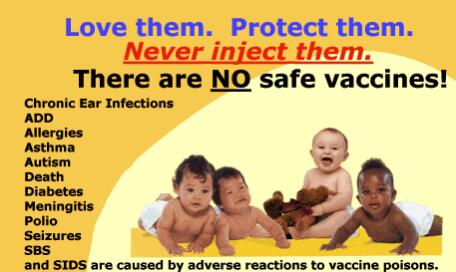The anti-vaccination movement is making its presence felt in Elko County and the rest of rural Nevada as the number of once rare diseases is beginning to climb say public health officials.
Wednesday, Nevada Division of Public and Behavioral Health, Elko County School District and Immunize Nevada hosted vaccination clinic to combat an out break of whooping cough which has seen a 100 percent increase in just the last year. Elko County had reported 14 confirmed cases of pertussis since July, compared to 15 total cases of pertussis in Elko County in 2013 and two cases in 2012.
 Also known as pertussis is a highly communicable respiratory disease, typically accompanied by a severe cough that makes a “whooping” sound. Pertussis is very dangerous, even fatal, for those who are not vaccinated, especially infants and young children.
Also known as pertussis is a highly communicable respiratory disease, typically accompanied by a severe cough that makes a “whooping” sound. Pertussis is very dangerous, even fatal, for those who are not vaccinated, especially infants and young children.
Although once almost completely eradicated in the US , whooping cough as well as a host of other childhood diseases are making a comeback due to the anti-vacination movement that claims vaccinations can cause autism and a variety of other disabilities to children.
 The MMR vaccine was the subject of controversy after publication in The Lancet of a 1998 paper by Andrew Wakefield and others, reporting a study of 12 children mostly with autism spectrum disorders with onset soon after administration of the vaccine.[72] During a 1998 press conference, Wakefield suggested that giving children the vaccines in three separate doses would be safer than a single vaccination. This suggestion was not supported by the paper, and several subsequent peer-reviewed studies have failed to show any association between the vaccine and autism.
The MMR vaccine was the subject of controversy after publication in The Lancet of a 1998 paper by Andrew Wakefield and others, reporting a study of 12 children mostly with autism spectrum disorders with onset soon after administration of the vaccine.[72] During a 1998 press conference, Wakefield suggested that giving children the vaccines in three separate doses would be safer than a single vaccination. This suggestion was not supported by the paper, and several subsequent peer-reviewed studies have failed to show any association between the vaccine and autism.
 It later emerged that Wakefield had received funding from litigants against vaccine manufacturers and that Wakefield had not informed colleagues or medical authorities of his conflict of interest; had this been known, publication in The Lancet would not have taken place in the way that it did. Wakefield has been heavily criticized on scientific grounds and for triggering a decline in vaccination rates (vaccination rates in the UK dropped to 80% in the years following the study), as well as on ethical grounds for the way the research was conducted. In 2004 the MMR-and-autism interpretation of the paper was formally retracted by 10 of Wakefield’s 12 co-authors, and in 2010 The Lancet ’s editors fully retracted the paper.
It later emerged that Wakefield had received funding from litigants against vaccine manufacturers and that Wakefield had not informed colleagues or medical authorities of his conflict of interest; had this been known, publication in The Lancet would not have taken place in the way that it did. Wakefield has been heavily criticized on scientific grounds and for triggering a decline in vaccination rates (vaccination rates in the UK dropped to 80% in the years following the study), as well as on ethical grounds for the way the research was conducted. In 2004 the MMR-and-autism interpretation of the paper was formally retracted by 10 of Wakefield’s 12 co-authors, and in 2010 The Lancet ’s editors fully retracted the paper.
 The CDC, the IOM of the National Academy of Sciences, and the UK National Health Service have all concluded that there is no evidence of a link between the MMR vaccine and autism. A systematic review by the Cochrane Library concluded that there is no credible link between the MMR vaccine and autism, that MMR has prevented diseases that still carry a heavy burden of death and complications, that the lack of confidence in MMR has damaged public health, and that design and reporting of safety outcomes in MMR vaccine studies are largely inadequate.
The CDC, the IOM of the National Academy of Sciences, and the UK National Health Service have all concluded that there is no evidence of a link between the MMR vaccine and autism. A systematic review by the Cochrane Library concluded that there is no credible link between the MMR vaccine and autism, that MMR has prevented diseases that still carry a heavy burden of death and complications, that the lack of confidence in MMR has damaged public health, and that design and reporting of safety outcomes in MMR vaccine studies are largely inadequate.
 In 2009, The Sunday Times reported that Wakefield had manipulated patient data and misreported results in his 1998 paper, creating the appearance of a link with autism.[84] A 2011 article in the British Medical Journal described how the data in the study had been falsified by Wakefield so it would arrive at a predetermined conclusion.[85] An accompanying editorial in the same journal described Wakefield’s work as an “elaborate fraud” that led to lower vaccination rates, putting hundreds of thousands of children at risk and diverting energy and money away from research into the true cause of autism.
In 2009, The Sunday Times reported that Wakefield had manipulated patient data and misreported results in his 1998 paper, creating the appearance of a link with autism.[84] A 2011 article in the British Medical Journal described how the data in the study had been falsified by Wakefield so it would arrive at a predetermined conclusion.[85] An accompanying editorial in the same journal described Wakefield’s work as an “elaborate fraud” that led to lower vaccination rates, putting hundreds of thousands of children at risk and diverting energy and money away from research into the true cause of autism.
A special court convened in the United States to review claims under the National Vaccine Injury Compensation Program ruled on 12 February 2009 that parents of autistic children are not entitled to compensation in their contention that certain vaccines caused autism in their children.
 Despite being completely discredited, the anti-vac movement is still growing and several communities including Elko county are in danger of losing their herd immunity from childhood diseases once believed to be defeated.
Despite being completely discredited, the anti-vac movement is still growing and several communities including Elko county are in danger of losing their herd immunity from childhood diseases once believed to be defeated.
Herd immunity or herd effect, also called community immunity, describes a form of immunity that occurs when the vaccination of a significant portion of a population (or herd) provides a measure of protection for individuals who have not developed immunity. Herd immunity theory proposes that, in contagious diseases that are transmitted from individual to individual, chains of infection are likely to be disrupted when large numbers of a population are immune or less susceptible to the disease. The greater the proportion of individuals who are resistant, the smaller the probability that a susceptible individual will come into contact with an infectious individual.
As of 2009, herd immunity is compromised in some areas for some vaccine-preventable diseases, including pertussis, measles, and mumps, in part because of parental refusal of vaccination.


